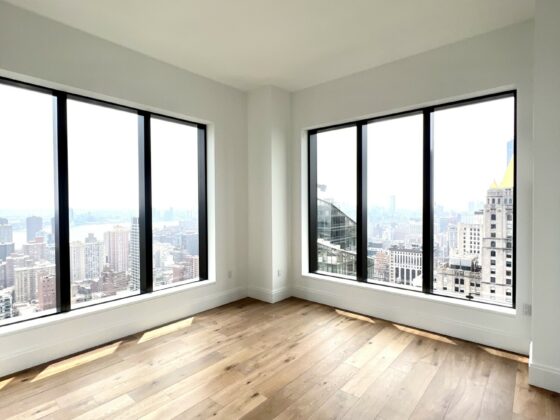Table of Contents Show
Everyone knows the new tax law that went into effect this year. Officially called the Tax Cut and Jobs Act (TCJA) of 2017, the law made sweeping changes to individual and corporate taxation, which have impacted real estate. The law likely negatively affects residential real estate buyers, particularly New York. For example, it limits state and local tax deductions to $10,000, and mortgage interest can only be deducted on loans up to $750,000, down from $1 million.
However, those pursuing real estate investing as a business likely benefitted from the new tax legislation. Using the ability to deduct more depreciation and hence improve your cash flow. It is an arcane but essential consideration.
What is The Depreciation Tax Law?What is The Depreciation Tax Law?
You can immediately expense certain items, such as mortgage payments, insurance, taxes, and repairs.
Depreciation falls into a different category. The Internal Revenue Service amount allows you to expense annually for some time for everyday wear and tear. Including the purchase price (but not the portion for land) and any long-term improvements you have made. This differs from regular maintenance and repairs, such as a paint job.
You may choose to invest in condo units in New York, given their preponderance. However, purchasing co-ops as an investment is more challenging since the board restricts subletting.
What is Section 179?What is Section 179?
This has received a lot of attention. Under the IRS Code, Section 179, you can deduct the entire upfront cost for improvements, subject to a limit. However, according to the IRS, this applies to “qualified real property,” which it defines as a “qualified improvement property” (non-residential building) and some improvements.
The law made it easier for real estate buyers to take advantage of this provision. However, the provision is only available to those that operate real estate as a business. You must pursue a profit and work regularly and continuously (although you can hire someone to manage it). In addition, if it is an investment, it will not qualify.
If real estate investing is your business, you can now use Section 179 to deduct personal property used in the residential rental. Previously, you could not do so. Therefore, if you buy a new refrigerator or furniture and put it into the rental unit, you can deduct the total in the first year. You may also deduct property and offsite equipment used in running the business. These include computers, cell phones, and office equipment.
The upshot is that the new law’s more generous depreciation rules made it more favorable for New York City’s real estate investors who recently purchased property or planned to go forward.
First, the TCJA doubled the maximum allowable deduction to $1 million if you purchased the property in 2018. This increases yearly since it adjusts for inflation. Second, there is a phase-out, which the new law increased. Third, the deduction limit starts at $2.5 million, which is also inflation-adjusted yearly, from $2 million.
LimitsLimits
You can only take the deduction to the extent your business earns a profit. Therefore, it cannot create a loss or widen your loss.
The primary advantage of taking a Section 179 deduction is the upfront expense in the first year. However, the IRS treats this amount as depreciation recapture when you sell the property. This gets taxed at a higher rate (up to 37% plus 3.8% net investment tax) than the capital gains tax rate. If you deduct depreciation over the average 27.5-year recovery period, the tax on that portion of the gain is 25% plus 3.8%.
How Rental Property Depreciation WorksHow Rental Property Depreciation Works
Unlike various investment options such as stocks and bonds, rental property is a depreciable asset. According to the IRS, real estate depreciation is an “annual allowance for the property’s wear and tear, deterioration, or obsolescence.” Note that this is only allowed for investment property and used for the rental income-producing activity. If you use any of it for personal uses, you can only deduct depreciation from the portion used for business.
Depreciation allows you to write off the property maintenance costs over time. For example, if you merely paint the kitchen, that is expensed immediately. Similarly, if you have any capital improvements, such as a major kitchen upgrade, these costs are also allocated over a period than in the year; it was completed—expenses such as general repairs and common charge fees.
Delving Deeper into Rental Property DepreciationDelving Deeper into Rental Property Depreciation
The first thing to know is that you cannot depreciate land. Therefore, you need to separate the land cost from the building. Second, the IRS allows a useful life of 27.5 years for residential real estate. Third, the IRS requires you to use the Modified Accelerated Cost Recovery System (MACRS) to depreciate residential real estate (assuming you put the property in service after 1986). Under MACRS, you can choose to depreciate the property under the straight-line method, which expenses the same amount annually, or under the General Depreciation System, which is more complicated.
Condos and Co-opsCondos and Co-ops
Living in New York City, you may choose to purchase condo or co-op units for rental. Renting condo units becomes challenging since you own the airspace and the common elements, such as the land. If you have a property tax bill that separates the assessed value, you can divide the amount based on this allocation. Alternatively, you can use an independent appraisal or an insurer’s agent’s estimate. If special assessments are charged for long-term improvements, you can depreciate the allotment you paid.
For co-op rentals, you depreciate the stock owned by the corporation rather than the apartment (which you technically do not own).
Crunching the NumbersCrunching the Numbers
Presenting a simple numerical example should provide more clarity. Calculate the depreciable real property as $1.1 million when purchasing a co-op. You may deduct $40,00straight-liner depreciation expense, assuming you utilize the straight-line method—the $1.1 million divided by 27.5 years.
You cannot have a passive loss in a year (except if you are an active participant subject to an income limit). Assuming you are in the 28% income tax bracket, you saved $11,200 in your taxes for the year. However, suppose you have $50,000 leftover when subtracting your other expenses from your rental income. In that case, this leaves $10,000 of taxable income—your tax savings amount to the annual depreciation multiplied by your marginal tax rate.
Concluding Thoughts Rental DepreciationConcluding Thoughts Rental Depreciation
We have seen how utilizing rental property depreciation and a non-cash expense improves your yearly cash flow. However, we noted that this merely defers your taxes. You are subject to a capital gains tax when you sell your property, assuming it has been appreciated. In figuring this amount, the depreciation is “recaptured.” If you have a cumulative depreciation of $400,000; you owe a depreciation recapture tax at a 25% rate, or $100,000 ($400,000 times 25%).
However, capital gains tax rates are currently lower than ordinary income. In addition, there are ways to defer taxes on capital gains and depreciation recapture taxes, such as a 1031 tax exchange.








